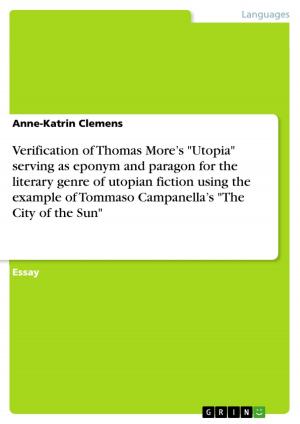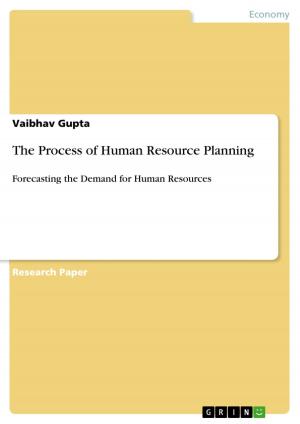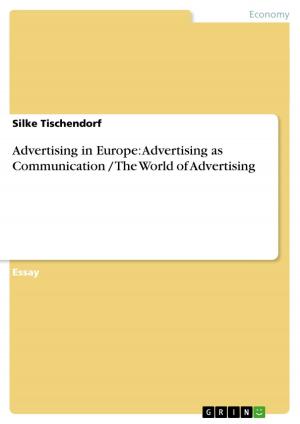International Trade and the Role of the State in Development
Nonfiction, Social & Cultural Studies, Political Science| Author: | Christof Dieterle | ISBN: | 9783638299527 |
| Publisher: | GRIN Publishing | Publication: | August 11, 2004 |
| Imprint: | GRIN Publishing | Language: | English |
| Author: | Christof Dieterle |
| ISBN: | 9783638299527 |
| Publisher: | GRIN Publishing |
| Publication: | August 11, 2004 |
| Imprint: | GRIN Publishing |
| Language: | English |
Seminar paper from the year 2004 in the subject Politics - International Politics - Topic: Globalization, Political Economics, grade: 1 (A), Rutgers The State University of New Jersey (Graduate School of Global Affairs), course: Introduction to IPE, language: English, abstract: Introduction One aspect of the study of International Political Economy (IPE) is the flow of goods, services and capital between the economies of different states. Is there a free flow of these things or is the flow somehow restricted and if so, why is this case? To answer these questions I will examine three periods in history and try to show the theoretical implications that can be seen in the respecti ve free or restricted flows of goods, services and capital. The first historical period I will examine is the period of great restrictions on trade and the flow of capital, namely the seventeenth and eighteenth centuries in Europe, mostly associated with the term mercantilism. The second period is the time after the Second World War in Germany, where trade and financial policies were applied to stimulate domestic growth. The third period begins with the collapse of the Bretton Woods System in the early 1970s and continues to this day with an emphasis on fewer controls and restrictions on trade and the flow of capital. Of course, this periodization is not the only way of looking at historical events and there are, within these large time frames, discontinuities. However, I believe it is helpful to define the mentioned periods rather generously, because this helps to discover certain general aspects that can be associated with different theories of trade and finance.
Seminar paper from the year 2004 in the subject Politics - International Politics - Topic: Globalization, Political Economics, grade: 1 (A), Rutgers The State University of New Jersey (Graduate School of Global Affairs), course: Introduction to IPE, language: English, abstract: Introduction One aspect of the study of International Political Economy (IPE) is the flow of goods, services and capital between the economies of different states. Is there a free flow of these things or is the flow somehow restricted and if so, why is this case? To answer these questions I will examine three periods in history and try to show the theoretical implications that can be seen in the respecti ve free or restricted flows of goods, services and capital. The first historical period I will examine is the period of great restrictions on trade and the flow of capital, namely the seventeenth and eighteenth centuries in Europe, mostly associated with the term mercantilism. The second period is the time after the Second World War in Germany, where trade and financial policies were applied to stimulate domestic growth. The third period begins with the collapse of the Bretton Woods System in the early 1970s and continues to this day with an emphasis on fewer controls and restrictions on trade and the flow of capital. Of course, this periodization is not the only way of looking at historical events and there are, within these large time frames, discontinuities. However, I believe it is helpful to define the mentioned periods rather generously, because this helps to discover certain general aspects that can be associated with different theories of trade and finance.















